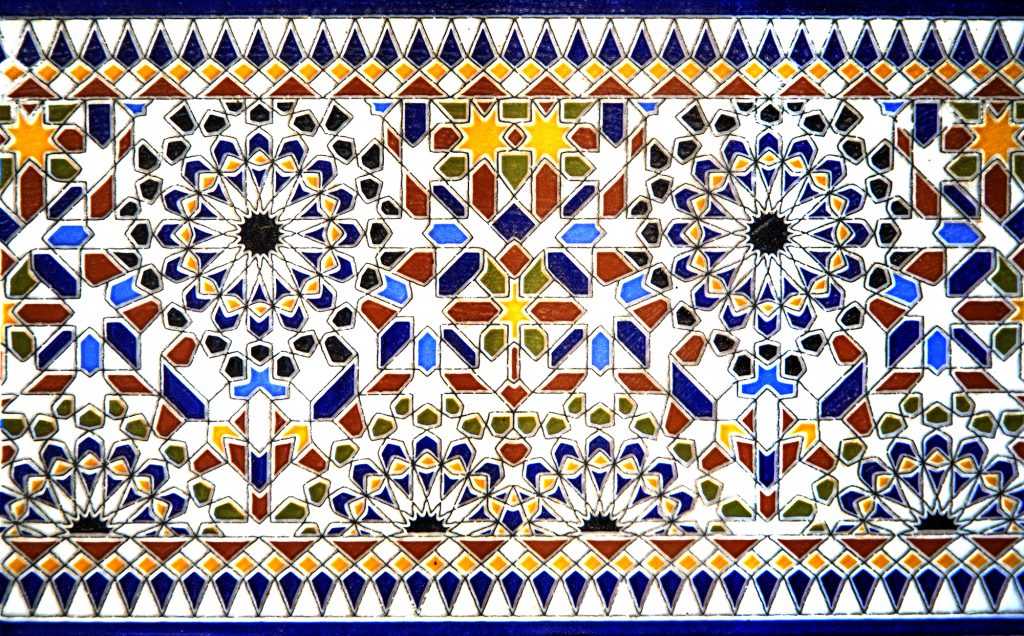If you’re looking for SEO and online marketing for Arabic countries, you’ve come to the right place. With 17 years of experience running SEO campaigns in English, German, French, Italian – and of course Arabic – we offer a broad range of services.
We’re happy to help you achieve your business goals in Arabic-speaking countries and boost your sales. At Zander Digital Services International, we have the know-how and tools you need to make your digital marketing strategies in Arabic a success. Contact us with no obligation!

Opportunities in the Arab world
Google in Arabic is currently one of the most underused marketing opportunities. We say this because we know valuable industries where only one or two real companies appear on the first page of Google for high-value Arabic search terms in those sectors. Regional marketers tend to focus on social media and influencer marketing, while neglecting one of the best ways to reach customers who are actively searching for what they offer. In fact, we’ve found that the opportunities in Arabic search are so clear that businesses targeting this market can dominate top positions for most keywords in a very short time.
Understanding Arab culture
Before launching a marketing campaign in the Arab world, it’s essential to understand your target audience and Arab culture. For Arabic SEO, this factor is a must. It helps you choose the right audiences for your campaigns and saves you time and money by focusing your SEO efforts on what delivers a solid return on investment.
Finding Arabic customers
Before launching an Arabic marketing campaign, it’s essential to understand Arab consumers.
We’ve created a comprehensive guide on this topic and would like to share some key traits you should keep in mind when dealing with Arab consumers:
- Shopping is a social activity. Recommendations are everything.
- Fashion and trends are extremely important.
- Deals and negotiations are part of business culture.
- Arab culture is deeply rooted in tradition.
- Most Arabs are religious and expect that to be respected.
- The Arabic language is key to reaching a broad audience in the region.
- The majority of Arabs are young – in some Gulf countries, half the population is under 25.
Mobile SEO in der arabischen Welt
It’s important to understand that around 90–95% of traffic from the Arab world comes from mobile devices. Many marketers make the mistake of focusing primarily on a website designed for desktop users – even though, in many cases, they make up less than 5% of the total audience.
The focus should be on making the Arabic version of the website lightweight, fast-loading, and easy to use. It’s important to note that machine translation can affect the mobile layout of an Arabic website, making it harder for users to convert or complete a purchase from their device. That’s why translation and CSS styling for Arabic pages should always be handled by a native Arabic speaker.

Key factors for ranking on Google in the Middle East
Think about the traffic that converts
Due to the limited competition in many Arabic-speaking industries, it may be less difficult to rank for many search terms that have high search volume. Depending on your website’s monetization strategy, it may not make sense to focus solely on keywords based on search volume, but rather on keywords based on search intent.
In general, you should start with keywords that align with the intent to perform a conversion action, such as signing up, making a purchase, or submitting an inquiry. Once you’ve adequately covered these types of keywords, it may make sense to target Arabic keywords with higher search volume, placing less emphasis on conversions and more on search intent.
Research on Arabic keywords:
Keyword research in Arabic is similar to keyword research in English or any other language, with some limitations you should understand. Many of the tools for keyword research are suitable for conducting keyword research in Arabic, but they may have some limitations. Below, we will discuss some of the specific effects of keyword research in Arabic.
Spelling of keywords
One of the most common problems when researching keywords is that there are different spellings of the same word that are all acceptable. In general, we find that the informal spelling of a keyword often has the highest search volume, as Arabic users tend to write in an informal form when searching online. This is most common with words that begin with the letter Alef. Depending on whether the Arabic speaker writes the Alef with or without Hamza, the search results can vary greatly.
The different dialects in the Arab world
Classical Arabic is the official language of the Arab countries, but it is not really the language spoken outside formal contexts. Each Arab country has its own dialect, such as Egyptian, Moroccan, Tunisian, etc. This factor can make keyword research more difficult, as Arabs tend to search in dialect rather than in classical Arabic. Therefore, it is very important to know the market we want to research and focus on that country’s keywords or include multiple variants of the same word. For example, an Egyptian will call a car “Arabaya”, while a Saudi will call a car “Syarra”. Many keyword research tools and other SEO tools do not suggest the alternative version of a word for another country, so many Arabic-speaking digital marketers may overlook these alternative versions during their research.
Arabic meta titles and descriptions
Optimized titles and meta descriptions are essential for good rankings in Arabic. **The optimization of titles and descriptions** in Arabic works similarly to English or any other language. Make sure your primary keyword appears in the page title and try to include part of a supporting secondary keyword if possible, without making the title sound unnatural. Meta descriptions should include variations of the primary keyword. The character limits for titles and meta descriptions are the same in Arabic as in English.
Creating Arabic content correctly
Arabic content, when done correctly, will attract more visitors than any other ranking factor. Why? As mentioned earlier, competition for many keywords in the Middle East is extremely low, so simply having Arabic content on your website means that some of it will rank for keyword searches. We’ve seen examples of websites that ranked high for many search terms in a sector with fewer than 5 backlinks and plenty of Arabic content. Since there are few competitors in many industries optimizing for Arabic keywords, if you write a lot of content on a specific topic, you are almost guaranteed to rank for various terms. That said, other ranking factors such as link building, website speed and other on-page optimization elements, which are also important, should not be ignored—but a lot can be achieved with Arabic content marketing.
Backlinks for Arabic countries
Link building is the key to the success of any SEO campaign, and Arabic is no exception. Getting regional backlinks from Middle Eastern countries with Arabic text is excellent. However, nowadays very few Arabic websites consider linking to other websites. Since there are no copyright laws in the region, many websites illegally copy content from other sites instead of linking to them as a reference.
How to get links
The source of links for websites in the Middle East varies by industry. We’ve found that it’s best to look at competitors who rank well and use a tool like Ahrefs to identify where the Arabic backlinks to their websites come from. These competitors usually have some links that you can also access. Since many websites in the Arab world do not link out.
There are also other tactics that have proven successful. Sponsoring a regional event in your sector can also earn you a link on the host’s website and open up the possibility of getting links from other businesses participating in the event. Creating online tools in Arabic, such as a calculator or a quiz, can also generate some links if outreach is done properly. In general, we advise against paying directly for links, as many websites that sell links get discovered, which can lead to a Google ranking penalty.
Regional hosting
The availability of hosting in the Middle East region is extremely limited, so most major websites in the region prefer to host their site in Europe and use a CDN to load their pages faster in the region. AWS has started expanding its hosting options in the Arab world, so more and more companies in the Middle East could be hosted locally instead of in Europe.
AWS now offers hosting in data centers in Manama, Bahrain, Dubai, and Fujairah. If you want your users to browse at high speed, we recommend hosting your website at one of these locations. Additionally, AWS is continuously expanding its global infrastructure, so more data centers may be launched soon.
Arabic URLs
URLs in Arabic give your website an advantage, but there are a few things to keep in mind.
- No one should type an Arabic URL by hand, as it’s easy to make a mistake that leads to a 404 page not found error.
- If using Arabic URLs causes significant issues with your CMS that lead to other on-page SEO problems, it might not be worth using them.
- Small variations in the spelling of an Arabic word in a URL can prevent a page from loading correctly if the word is misspelled.
- Try to keep Arabic URLs short — in most cases, no more than 3–5 words.
- Arabic URLs can cause crawling issues with some third-party tools.
Arabic domain names for SEO
Should you get an Arabic domain name? In short, no. Arabic domains are not widely used and can, in some cases, cause issues with on-page SEO.
Optimization for the Arabic Google Knowledge Graph
The Arabic Google Knowledge Graph exists similarly to the English or Spanish one. Google extracts certain content that has a concise format and displays it in Arabic above other search results as a quick answer to the query. We’ve found that a combination of text, lists, and short definitions or summaries in Arabic articles increases the likelihood of appearing in Google’s results.

Google’s challenges in the Arabic language
Below, we will look at some of the SEO challenges in the Arab world that are, in some ways, unique to this region.
Common unnatural SEO practices
The world of search engine optimization in the Middle East has attracted many people trying to make quick money without considering the long-term consequences of their methods. We observe that many SEO consultants use tactics that violate Google’s Webmaster Guidelines. These include buying links, automated linking, keyword stuffing, and copying content from other websites. These tactics may work in the short term, but in the long run, they can lead to a website being removed from Google’s index.
Content-Spam
Another challenge for Arabic search engine optimization is that in the past, much of the Arabic web content was spammy or low quality. For this reason, Arabs have developed a different approach to browsing the internet than people from the West. It is crucial for the success of any SEO strategy that your website does not appear spammy or use other techniques that might discourage Arabic visitors from staying on the page.
Tracking issues
One of the problems we face in the region is that many of the position tracking tools do not provide an entirely accurate picture of where a website ranks for a keyword in Arabic. We’ve found that tools like Ahrefs may show a keyword ranking at a certain position, but someone on the ground in that country may see completely different results than what the tool displays. Whatever tool you use, it is advisable to verify the accuracy of the results.
Benefits of Arabic SEO
When we compare SEO in the Arab world with SEO in the English-speaking world, several notable advantages become apparent. Below, we highlight some of them:
Differences in SEO by type of website

News and media outlets
Websites with diverse content can perform well in Arabic due to the general scarcity of Arabic online content. However, if the website is monetized through ads, it is important to choose the right keywords, as much of the traffic from the Arab world comes with very low CPM. It is crucial to select keywords that are most likely to attract the right audience of Arabs with high CPM and CPC payouts.
Lead generation
Lead generation websites can perform very well in Arabic. In most industries, you can usually find keywords that generate traffic and leads with relatively low investment. It’s important to keep in mind that Arabs are most likely to use mobile phones. Therefore, forms should be optimized for mobile and for right-to-left languages.
E-Commerce
Ranking for e-commerce keywords in Arabic is significantly easier due to low competition. The challenges usually lie in logistics, as cross-border transactions, shipping, and customs need to be managed. Marketing is the most straightforward part.
The best countries in the Arab world for SEO
The Gulf States
The Gulf States are the wealthiest region in the Middle East thanks to oil production over the past decades. Arabs in the Gulf are active online and enjoy shopping from e-commerce stores around the world. More than 80% of our clients contact us to do business in the prosperous Gulf region.
The Levant
The Levant region consists of Lebanon, Jordan, Palestine, Syria, and Iraq. This region has gone through difficult times in recent decades due to wars and migration, but this also sets the stage for tremendous growth in the near future. Much of the region’s talent comes from Lebanon and Jordan, as both countries have strong education systems.

North Africa
North Africa is the most populous Arabic-speaking area in the MENA region. Egypt, with over 100 million inhabitants, is the largest country in the region. North Africa’s per capita GDP is lower than that of the Gulf Cooperation Council and the Levant. However, the region’s massive population makes it a lucrative target for SEO strategies. It is important to note that dialectal differences in this region are more pronounced than in others. For example, the Arabic spoken in Algeria and Morocco is largely unintelligible to most Egyptians. Using French alongside Arabic in your marketing offers advantages in both Algeria and Morocco.

Need help with Arabic SEO?
We hope you found this guide to Arabic SEO helpful. If you’re looking for Arabic SEO services or need assistance getting your website to the top of Google’s Arabic search results, please contact us via our contact form.
Unverbindlich anfragen
Schicke uns eine Nachricht mit der Angabe Deines Unternehmens, Deiner Website und Deiner Anfrage. Wobei dürfen wir Dich unterstützen?